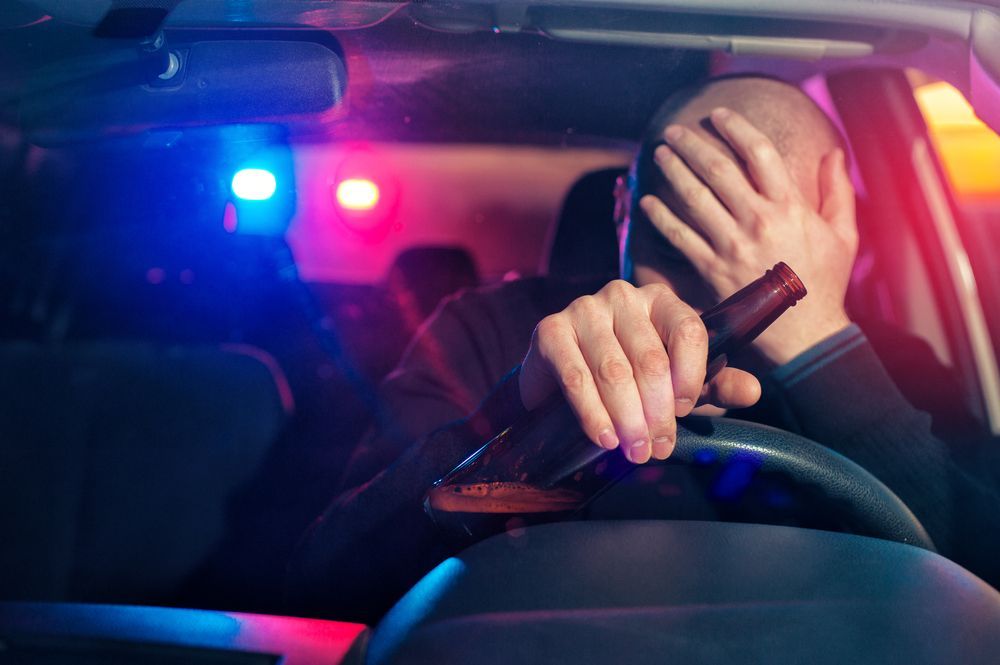Evaluating the Impact of To-Go Alcohol Sales on Open Container Laws
Written by Law Office of Rolando Cantú, reviewed by Rolando Cantú
Evaluating the Impact of To-Go Alcohol Sales on Open Container Laws
Many states have implemented laws allowing restaurants and bars to sell alcoholic beverages for takeaway. While this is a welcome relief for those who are looking to enjoy a drink while they stay at home, it raises some interesting questions about open-container laws. In this post, we'll take a look at the impact that to-go alcohol sales have had on open container regulations.
What Are Open Container Laws?
An open container Law refers to any regulation that prohibits people from carrying or consuming alcohol in public places. These laws are designed to discourage public intoxication and limit the amount of underage drinking. Although there is no single set of open container regulations across all states, most prohibit the possession or consumption of an open alcoholic beverage container in public areas like sidewalks, parks, or beaches.
This also extends to having open alcoholic beverage containers while using a motor vehicle. Although the rules vary from state to state, most require that all open containers of alcohol must be stored in the trunk or other non-living areas of the car. This includes the fact that you can not transport these in the passenger area, and moreover, if passengers consume alcohol, they must do so while sitting in the back seat at least.
DWI laws, in combination with Open container laws, prohibit this and affirm that you can be arrested for driving under the influence of alcohol even if you are not actually operating a vehicle. This means that regardless of whether you're at rest in the driver's seat with your car off, asleep in the passenger area, or parked on the side of a road - as long as an officer believes there is cause to believe intoxication and has sighted your keys inside the ignition, they have full authority to arrest and charge you with DWI.
You can face Texas department incarceration, a state jail felony, or even prison time, and lose your driver's license if the person knowingly possesses an open container of alcohol while in motor vehicles.
Background on To-Go Alcohol Sales
One of the more popular changes has been the introduction of to-go alcohol sales for customers due to the COVID-19 pandemic. However, this practice introduces a number of legal questions related to open container laws and other related regulations. What do business owners need to know about selling alcohol for pick up or delivery? Let's explore the legalities behind these services below.
The COVID-19 pandemic has had a profound impact on the hospitality industry, resulting in restaurants and bars being shut down for months. In an effort to keep establishments afloat, many states have implemented laws that allow restaurants and bars to sell alcohol for takeout. These laws vary from state to state, but most permit the sale of sealed containers of beer and wine.

How Do To-Go Alcohol Sales Affect Open Container Laws?
To-go alcohol sales allow customers to purchase alcoholic beverages from restaurants and bars without having to consume them onsite. While this can be seen as beneficial for businesses in need of extra revenue during uncertain times, it does create potential conflicts with existing open container laws in many states. Since these drinks are not intended for immediate consumption, customers may be tempted to carry them with them as they move around outside their homes—something that could potentially result in violations of open container statutes across the country.
Open Container Laws in Texas
Despite the assumption that consuming alcoholic beverages in public is illegal, it isn't always prohibited across Texas. Depending on your location and activity, you may be able to enjoy a drink outdoors! Local ordinances must adhere to two areas – spots like parks where alcohol consumption is not allowed or establishments with valid licenses for selling spirits such as bars, taverns, nightclubs, and restaurants.
In Texas, is considered a Class A misdemeanor to possess an open container of alcohol while in a public place outside the permitted hours. This includes any area outside the home such as parks, streets, sidewalks, and alleys. The penalty for violating this law includes up to one year in jail and fines of up to $4,000.
- Public Places: Drinking in public is prohibited from midnight to noon on Sunday and between midnight and 7 a.m. Monday through Friday with the exception of 10 a.m. -12 p.m. on Sundays at any establishments that offer food or wine services, as well as fairs, concerts, festivals or sports events etcetera.
- Alcohol Sell allowed Public places: Consumption of alcohol in public places that are permitted to sell it is only allowed between 10 a.m. and noon on Sunday if purchased with food, or at select wineries, fairs, festivals, concerts, or sports venues; all other times from Monday-Saturday 2:15 a.m.-7 am and Sundays 12 p.m.-2:15 am are prohibited for public consumption of alcoholic beverages.
Further, cities are legally able to forbid the possession and public consumption of open containers according to Alcoholic Beverage Code Section 109.35.

What Are Businesses Doing To Comply With Open Container Regulations?
Fortunately, businesses have taken steps to ensure that their customers remain compliant with local regulations when ordering and consuming takeout alcohol. For starters, establishments are providing clear labeling on their containers indicating that the contents should not be consumed until the customer arrives home safely. Additionally, many businesses are requiring customers to sign a document acknowledging their understanding of the applicable state laws before they can purchase a takeout beverage. This helps ensure that customers remain aware of any relevant restrictions while taking advantage of the convenience offered by these services.
You might be interested: 5 things you need to know about DWI charges in Texas
Conclusion
Overall, it's important for both businesses and consumers alike to understand how existing regulations affect their ability to purchase and consume takeout beverages responsibly. By remaining cognizant of local statutes and utilizing labeling solutions or other methods when necessary, businesses can ensure compliance with open container laws while still providing patrons with an enjoyable experience - even when they're stuck at home! Therefore, if you're considering offering takeout alcohol services for your business or purchasing them for personal use, make sure you take the time to understand your local regulations first so you don't end up running afoul of any open container rules!
At the Law Office of Rolando Cantu, we understand how intimidating these laws can be and are here to help. If you have any questions about Texas open container regulations,
DWI state Law, or any other related legal matter, don’t hesitate to
contact us today. We’d be happy to provide you with the experienced legal advice you need to stay compliant and out of trouble.











